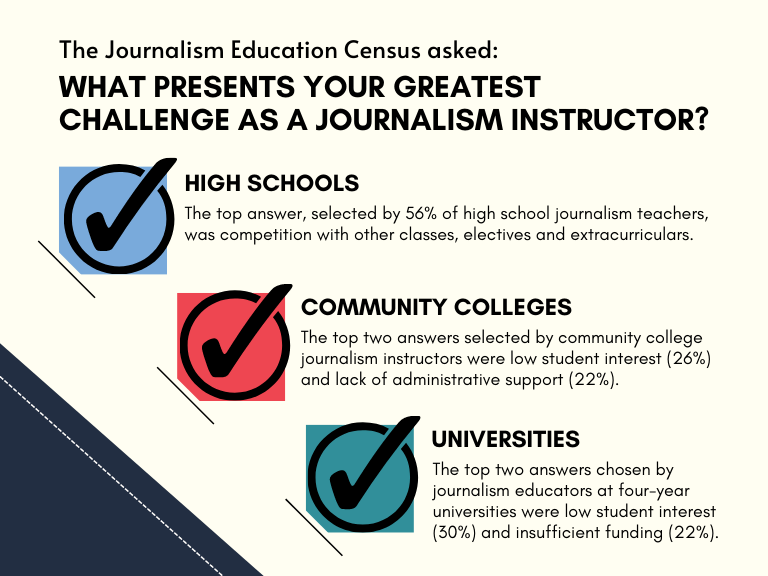At the beginning of every semester, when a new batch of reporters enters The Channels newsroom at Santa Barbara City College, where I serve as faculty adviser, I tell them this: “Journalism is a team sport.”
To hone their skills and produce the best campus publication, I tell them, they have to communicate and collaborate with one another. They have to engage in tough newsroom debates about ethical practices and other matters. They have to offer up their work to (hopefully constructive) criticism, not just from the community they serve, but also from their fellow reporters and editors, while still having the courage to defend their decisions when need-be. They also have to learn from each other and be flexible when stories, newsroom protocols, technology and AP style rules inevitably change.
At any student news outlet, no one can grow if they’re an island. And if we all take a moment to zoom out from our own respective newsrooms, whether student or professional, we can see that the same can be said for the field of journalism as a whole.
Today’s journalism industry faces a slew of challenges: expanding news deserts, insufficient diversity and inclusion in newsrooms, declining trust in traditional news media, the list goes on. If we have any hope of fortifying our industry in today’s post-truth era, we must work together at every level of the journalism career pipeline. By “we,” I mean students, educators, professional journalists and concerned stakeholders alike, who value our Constitutionally protected free press and want to safeguard it well into the future.
This idea of teamwork is at the core of our vision for the Journalism Education Collaborative. Our hope is that together, we can build a living, breathing community, united by the goal of strengthening and sustaining the state’s news and information industries, and committed to advancing equity, diversity and inclusion across student programs and the profession.
The evolution of JOUR-Ed
Initiated in 2018 by the California Press Foundation and led by Linda Bowen, then-chair of the journalism department at California State University, Northridge, this project began as an effort to build an open-source database of journalism programs and publications at California high schools, community colleges and universities. Originally dubbed the “Journalism Education Census,” the idea was to make it easier for journalism educators at all three levels to contact and support each other. We also wanted to use the list to gather on-the-ground data from journalism teachers and media advisers and get a clearer picture of the state of journalism education in California.
Our original directory contained roughly 900 listings from high schools, community colleges and universities with journalism programs and publications, including many that operate as extracurricular clubs. From 2019 to 2020, we surveyed the educators on that list, and though the findings were not necessarily surprising, they confirmed a lot of our assumptions. We learned about the insecure funding, low student interest and low program enrollments at many schools. We also learned that journalism educators, especially those at the high schools, are hungry for professional development, as well as networking opportunities with professionals in the field who’d be willing to come to their classrooms as guest speakers.
Those census findings ultimately inspired the re-envisioning of our project as the Journalism Education Collaborative, a free platform through which students, educators, professionals and stakeholders across the state can connect with one another to network, share knowledge and resources, and seek and provide support, financial or otherwise.
Once this platform is fully built out, we imagine it to be an active community where members will be able to access and contribute to our noncommercial database of journalism programs at California high schools, community colleges and universities. In addition, members will also be able to:
- participate in interactive discussions about various topics and issues in journalism and journalism education
- host or attend online guest talks, speaker series, webinars
- share instructional videos and other educational materials that can be used in student newsrooms / contribute to journalism open educational resources (OER)
- post and share information on available scholarships, internships and job opportunities
- share new journalism and mass communication research and case studies
- share innovative projects by student news outlets that can provide inspiration for other student newsrooms
Simply put, we want to be a free, centralized resource for all journalism students, educators, and professional media makers in the state–a true collaborative.
Our goal is to fully launch the platform in 2024. Right now we’re working on updating and securing the database, planning out our initiatives and developing the rest of the site. In the meantime, we would love to hear your thoughts on the project. What features would you like to see on the platform? Would you be interested in leading a webinar or contributing other content or materials? What other ideas do you have for strengthening the journalism pipeline?
To join the conversation or our database, please email us at info@jour-ed.org. Also stay in the loop by following us on Instagram, Twitter and Facebook. We’d love to have you on the team.

